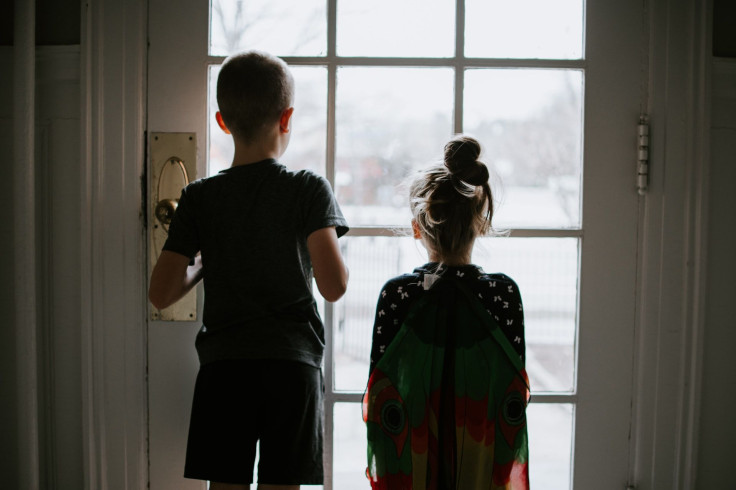5 Things To Remember When You Practice Self-Quarantine

KEY POINTS
- Thousands of people around the country are observing self-quarantine measures
- The CDC has issued new house rules during self-quarantine
- There are five things to remember when you are observing the measure
If you are among the thousands now practicing self-quarantine due to possible exposure to coronavirus, you need to follow some new house rules. These guidelines are among those set by the Centers for Disease Control and Prevention, as well as your local health officials during the pandemic.
First, you need to know that self-quarantine and self-isolation are not the same. The first involves a huge number of healthy people in danger of falling sick after a possible exposure. The second is for those who have become ill with coronavirus and have become a threat to their family or visitors. The latter should be carefully watched in case of symptoms worsen.
The Situation
At present, with the scarcity of testing kits in the greater part of the country, it is difficult for people to determine if they are already infected or just being careful. While state and local governments have the authority to order quarantine, they opted to let responsible citizens do it voluntarily. As circumstances change, however, this authority may be invoked.
A growing number of persons are going into self-quarantine because they may have been exposed to a colleague or friend who is infected with the coronavirus. Millions of other citizens have been asked to stay home and only go out if extremely necessary.
Far From Being A Vacation
Things that made you opt for a self-quarantine may appear like a vacation, a great time to catch up on your sleep or binge-watch movies on Netflix. You will soon realize, however, that it is never easy to go into seclusion away from your family or friends. What makes it even harder is the huge gap in the official guidelines, along with the practical and logistical nightmare.
Home quarantine may perhaps last for approximately two weeks, the believed incubation period of the virus. It can become unpleasant and challenging, particularly if you live with lots of housemates or you have elderly relatives or young children to care for.
Separation
If you have been exposed to the virus and have been infected yourself, then you need to separate from your housemates, elderly relatives, children, and your partner. Although there are relatively few cases of the virus jumping from humans to animals according to the CDC, be on the safe side and also stay away from your pet.
You must have a room, and if possible, a bathroom, for your exclusive use. Cover your mouth and nose with a tissue, face towel, or sleeves when coughing or sneezing. Bear in mind also that surfaces you touch or cough on could become contaminated. Avoid visitors during this time and maintain a six feet distance from family members.
Face Mask
If you need to be around other people, in your home or car, you have to wear a mask. Encourage everyone to do the same thing too.
Remember that commercial masks are very hard to find at this time. Do not worry, though, because you can create your own mask out of available materials in your homes.
Good Hygiene
Discard the tissue you used when coughing or sneezing. Throw them away in a lined trash can. After doing so, wash your hands immediately with soap and water for twenty seconds. You can also use a sanitizer if it is not possible for you to use soap and water.
The practice of handwashing should be done frequently, not only when you cough or sneeze. You also need to avoid touching your mouth, eyes, and nose if you have not yet washed your hands.
Disinfect Items And Surroundings
Avoid sharing glasses, dishes, eating utensils, bedding, towels, or drinking glasses with anyone in your home. After using these items, wash them immediately. You also need to frequently wipe your tabletops, bathroom fixtures, doorknobs, phones, tablets, keyboards, countertops, and bedside tables with a household cleanser. These items are considered “high-touch surfaces,” so there is a need to frequently wipe them.
Surfaces that may have been contaminated by bodily fluids should also be frequently wiped down. These include toilet seats, sinks, and faucet valves.
Observe Yourself
Monitor your health and immediately get in touch with a doctor if you start to develop symptoms or if such symptoms worsen. Remember to inform the medical staff that you are at risk of infection or may be infected with the coronavirus.
Request your household members who are not sick to pick up your prescriptions, stock up on your groceries, and keep the house clean. Try asking them to wipe down countertops and doorknobs. Remind them to always wash their hands frequently.
A Final Note
Always remember that going into self-quarantine can expose you to a great deal of emotional and financial hardship. This is true for those who live with their families and those living by themselves.
This is why, according to Arthur Caplan, a professor of bioethics at New York University, there has to be some kind of social intervention to incentivize and support isolation. Failing to do this will spell doom for those who voluntarily went on self-quarantine.
© Copyright IBTimes 2025. All rights reserved.





















